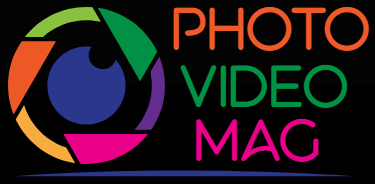Australia passes social media law penalising platforms for violent content | Social media
GoogleAds

Social media
Labor supports legislation in response to Christchurch shooting that threatens jail for executives, despite media companies’ concerns
The Australian parliament has passed legislation to crack down on violent videos on social media, despite furious reaction from the tech industry, media companies and legal experts.
The Labor opposition combined with the ruling Liberal-National Coalition to pass the law on Thursday, despite warning it won’t allow prosecution of social media executives as promised by the government. Tech giants expressed the opposite concern that it may criminalise anyone in their companies for a failure to remove violent material.
The bill, described the attorney general, Christian Porter, as “most likely a world first”, was drafted in the wake of the Christchurch terrorist attack, when video of the alleged perpetrator’s violent attack spread on social media faster than it could be removed.
On Thursday Porter said Facebook and Twitter “should not be playing footage of murder”, in the same way that commercial television stations would not show it.
“There are platforms such as YouTube, Twitter and Facebook who do not seem to take their responsibility to not show the most abhorrently violent material seriously,” he told reporters in Canberra.
Government can’t regulate Facebook – it’s up to all of us | Carys Afoko
The Sharing of Abhorrent Violent Material bill creates new offences for content service providers and hosting services that fail to notify the Australian federal police about or fail to expeditiously remove videos depicting “abhorrent violent conduct”. That conduct is defined as videos depicting terrorist acts, murders, attempted murders, torture, rape or kidnap.
The bill creates a regime for the eSafety Commissioner to notify social media companies that they are deemed to be aware they are hosting abhorrent violent material, triggering an obligation to take it down.
Porter said a “reasonable” or “expeditious” timeframe would depend on the circumstances and be up to a jury to decide, but “every Australian would agree it was totally unreasonable that it should exist on their site for well over an hour without them taking any action whatsoever”.
“This law would prevent that and criminalise that and offer the government an ability to respond where an organisation like Facebook let something livestream and play for a long time on their platform.”
The Digital Industry Group, which represents Google, Facebook, Twitter, Amazon and Verizon Media in Australia, has warned the bill was passed without meaningful consultation and threatens penalties against tech companies for content created by users.
Labor has promised to review the legislation if it is elected in May, adding to a list of national security laws it will have to revisit in government after supporting in opposition, including the encryption bill which it has promised to amend.
The group’s managing director, Sunita Bose, said members worked to take down abhorrent conduct “as quickly as possible”, but “with the vast volumes of content uploaded to the internet every second, this is a highly complex problem”.
“This ‘pass it now, change it later’ approach to legislation, such as we saw with the encryption law, creates immediate uncertainty for Australia’s technology industry,” she said.
“It threatens employees within any company that has user-generated content to be potentially jailed for the misuse of their services – even if they are unaware of it.
Mark Zuckerberg calls for stronger regulation of internet
The chief executive of Atlassian, Scott Farquhar, said that no one wanted abhorrent violent material on the internet but “the legislation is flawed and will unnecessarily cost jobs and damage our tech industry”.
“The current legislation means that anyone working for a company that allows user generated content could potentially go to jail for [three] years,” he said.
“As written, that applies to news sites, social media sites, dating sites, job sites – anywhere user content could be created.”
Farquhar complained that the legislation failed to define how “expeditiously” violent material must be removed, and did not define who in a social media company could be punished.
If the material in question is uploaded and you don’t take it down “expeditiously”, you can go to jail. What is expeditiously? Not defined! “Who” in a company? Not defined!
— Scott Farquhar (@scottfarkas) April 3, 2019
Corporate penalties range up to $10.5m or 10% of annual turnover, but Labor believes these provisions fail to pierce the corporate veil and punish executives for the actions of others in the company.
Penalties for individuals who “provide a hosting service” and fail to remove material can be up to three years imprisonment or a $2.1m fine, or both.
On Monday Labor warned these penalties would not apply to executives of social media companies because giants such as Facebook and Twitter – not the individuals themselves – provide the service.
Porter responded to those concerns on Thursday by noting the government had received advice that some services such as 4Chan and 8Chan had “individuals who were responsible for those platforms”, who could be charged.
“Even with respect to larger platforms such as Facebook, such as YouTube, there could well be instances where an individual is so complicit with the reckless availability of abhorrent violent material that they would be individually liable.”
The Law Council of Australia president, Arthur Moses, said criminalising social media companies and executives was a “serious step” and should not be legislated as a “knee-jerk reaction to a tragic event” because of the potential for unintended consequences.
A spokeswoman for News Corp Australia said making digital platforms liable for what they made available to the world was overdue, but the bill went beyond this.
“While we have worked with the government to try to minimise the impact, this law risks criminalising news reporting and provides significant powers to the eSafety Commissioner to take down news content,” she said.
The bill includes defences for public interest journalism. But the chief executive of the Media Entertaining and Arts Alliance, Paul Murphy, said it had “concerns that the legislation is being rushed in such a complex area without proper consideration to ensure it does not impinge on media freedom”.
{{#ticker}}
{{topLeft}}
{{bottomLeft}}
{{topRight}}
{{bottomRight}}
{{#goalExceededMarkerPercentage}}{{/goalExceededMarkerPercentage}}{{/ticker}}
{{heading}}
{{#paragraphs}}
{{.}}
{{/paragraphs}}{{highlightedText}}
{{#choiceCards}}
One-timeMonthlyAnnual
Other
{{/choiceCards}}We will be in touch to remind you to contribute. Look out for a message in your inbox in . If you have any questions about contributing, please contact us.
Source : https://amp.theguardian.com/media/2019/apr/04/australia-passes-social-media-law-penalising-platforms-for-violent-content
Auteur :
Date de Publication : 2019-04-04 09:00:00
Le droit d’auteur pour le contenu syndiqué appartient à la source liée.
GoogleAds




